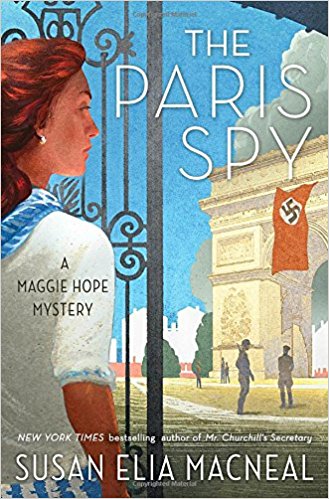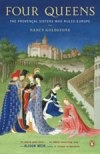 We’ve just learned that in 1961, the jury for the Nobel Prize for Literature snubbed J.R.R. Tolkien. But the big news isn’t that he lost—so did Graham Greene, Robert Frost, and E.M. Forster that year. The really shocking news was the release of the derisive and not-so-intellectual commentary of the Nobel’s jury: that august group of judges who had been entrusted, on behalf of Alfred Nobel, to select “only the most worthy.”
We’ve just learned that in 1961, the jury for the Nobel Prize for Literature snubbed J.R.R. Tolkien. But the big news isn’t that he lost—so did Graham Greene, Robert Frost, and E.M. Forster that year. The really shocking news was the release of the derisive and not-so-intellectual commentary of the Nobel’s jury: that august group of judges who had been entrusted, on behalf of Alfred Nobel, to select “only the most worthy.”
One could just imagine the stimulating and elevated conversation that would arise in a year that had such luminary candidates as the aforementioned Tolkien, Greene, Frost, Forster, as well as Isak Dinesen, aka Karen Blixen, Lawrence Durrell, and John Steinbeck, who went on to win the next year.
But instead the excerpts read a bit like the outtakes from a fierce session of sorority rush, with apologies to the Greek system. The Nobel jury found that Tolkien (who was nominated by C.S. Lewis, a tidbit that warmed my heart) was ruled out because they felt The Lord of the Rings trilogy “has not in any way measured up to storytelling of the highest quality.” Ouch. And also, huh? Did they not read the books? Maybe Tolkien was not Gabriel García Márquez, but his storytelling was epic, mythical, stirring. Tolkien was a medieval history scholar, and he imbued so much of those legends into the many cultures (and languages) he created in the kingdom of Middle Earth.
The same jury ruled out both Frost and Forster, then 86 and 82 respectively, because of their “advanced age.” Despite the fact that the prolific and legendary Frost was still writing and publishing poetry, the jury argued that his age was “a fundamental obstacle, which the committee regretfully found it necessary to state”. They were much less kind to Forster, whom they called “a shadow of his former self, with long lost spiritual health.” Even as a shadow, Forster, who wrote the pioneering and seminal Modernist novels Howard’s End and A Passage to India, was one of the most significant and influential writers of the 20th-century from a literary and a cultural standpoint. His themes of cultural conflicts, identity, and miscommunication still perplex us today—“only connect!” I’d like to think they’ve gotten over the ageism, as the latest winner, Swedish poet Tomas Tranströmer, is 80, and in 2007, an 87-year-old Doris Lessing won.
I do imagine that it would be an immensely difficult job picking between these lettered giants. It’s just that I would expect the dialogue to be more focused on the pluses, and er the literary qualifications, rather than on the negatives. One would expect the jury to be awe-struck and full of scholarly wonder at such an impressive slate. Instead, they lobbed a series of blackballs.
One thing I don’t want to get lost in all this hype is the merit and brilliance of 1961’s winner: Ivo Andrić. There have been a few disparaging comments from the Tolkien camp. Whoa, whoa, whoa. If you have not read his masterpiece, The Bridge on the Drina, then it’s a must for your TBR. The novel looks at the history, strife, and conflict in the Bosnian region as it plays out near a great stone bridge that was built in 1516. It reads much like a novel by James Michener or Edward Rutherford, with layered folklore and a changing cast of characters that unfold over centuries. There are Serbs, Bosnians, Jews, Christians, Turks, and all of their families, communities, and cultures. The bridge stands indomitable until it is blown away at the start of World War I. “The summer of 1914 will remain in the memory of those who lived through it as the most beautiful summer they ever remembered, for in their consciousness it shone and flamed over a gigantic and dark horizon of suffering and misfortune which stretched into infinity.” Andrić’s “Bosnian Trilogy” (The Bridge on the Drina, Bosnian Chronicles, The Woman from Sarajevo) enjoyed a revival during the terrible unrest in that area during the mid-1990s. The novels still resonate today, and Andrić is claimed as part of Croatian, Serbian, and Bosnian literature.
The jury notes from back in 1961, reveal that Greene and Blixen technically came in second and third, though there are no prizes for that. Still, it is confounding that the committee never chose to honor Greene, whose repeated nominations were passed over by several Nobel juries during the course of his lengthy career. He was in good company, though. The Pantheon of non-winners reads like a college syllabus: Mark Twain, Henrik Ibsen, Ranier Maria Rilke, Thomas Hardy, Joseph Conrad, Theodore Dreiser, and more recently, Michael Ondaatje, Carlos Ruiz Zafón, and Haruki Marakami. In fact, Ernest Hemingway, who lost several times before finally winning in 1954, termed it the “IGnobel” prize.
It does make one wonder. I’m not sure how much crossover is on the committees, but this is the same organization that in 2009 chose President Obama as winner of the Nobel Peace Prize … two days after NASA bombed the moon.
As to all the ire over the Tolkien news, I’m still reeling from the outrageous and rather blasphemous claim that LOTR is not great storytelling. If anything, it is the apex and apotheosis of storytelling! The trilogy is ranked as the third best-selling novel worldwide, having sold over 150 million copies. Andrew Pettie wrote a wonderful article for the UK’s Telegraph “In Defense of J.R.R. Tolkien.” As Pettie noted, so “Tolkien wasn’t Tolstoy.” Then again, back in 1902 the Nobel committee also passed over Tolstoy, in favor of French poet René F. A. Sully-Prudhomme.





